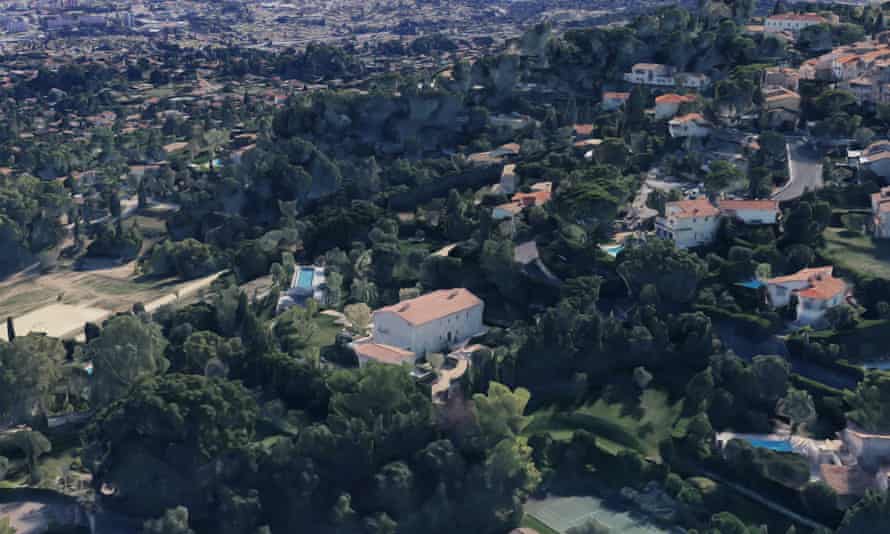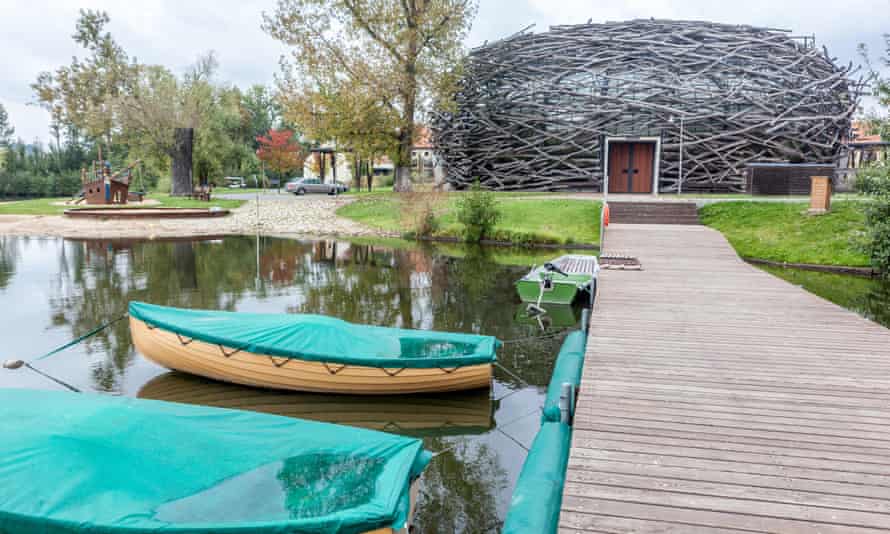Czech PM Under Pressure used offshore companies to buy £13m French mansion

Andrej Babiš, the billionaire Czech prime minister, is under pressure to explain a convoluted offshore structure he used to finance his purchase of a £13m mansion in the south of France.
The disclosure that Babiš controls a group of overseas companies comes as he contests a general election in the Czech Republic this week – and represents the latest embarrassing turn for a former oligarch who entered politics promising to fight corruption. Babiš is the second-richest man in the Czech Republic with a net worth of £2.7bn but his previous business dealings have provoked public protests and an ongoing clash with the EU.
Details of the secretive offshore arrangements set up by the prime minister are disclosed in the Pandora papers, the largest ever trove of leaked offshore data. The leaked documents have been shared by the International Consortium of Investigative Journalists with the Guardian, the BBC and other media around the world.
The revelations add to a mounting list of controversies facing the Czech prime minister as he seeks a return to power. In June, Czech police asked for Babiš to be charged with fraud in the long-running “Stork’s Nest” affair, in which he is alleged to have fraudulently obtained €2m (£1.72m) in EU funds to build a hotel.
Babiš has long rejected all allegations of wrongdoing and dismissed the police request as “politically motivated”. But in August the European Commission threatened to suspend payments of EU subsidies to the Czech Republic over suspected conflicts of interest in Babis’s business dealings.

His office did not respond to the Guardian’s requests for comment on his offshore companies, while he refused to talk to a BBC camera crew about his French property when they questioned him on the Czech election campaign trail.
The Pandora papers show that in 2009 the then tycoon – when he had yet to enter politics – passed €15m via a succession of secret loans through three overseas companies: from the British Virgin Islands-based Blakey Finance Limited through a business called Boyne Holding LLC in Washington DC to its subsidiary SCP Bigaud in Monaco. According to the leaked documents, he had used the Panamanian law firm Alcogal to create the three companies in the same year.
Once the money had made its way through the chain to the company in Monaco, it was used to buy a chateau and neighbouring villa in Mougins, near the Côte d’Azur. The property boasts a private cinema, swimming pool, billiard room and wine cellar, as well as a master bedroom with two en suite bathrooms.
Moving money offshore or using offshore companies to buy property is not illegal and is sometimes done for legitimate reasons of privacy or security. The original source of the funds is unknown, however, as is why Babiš chose such a complicated structure to finance a purchase he could have made directly. The arrangements did not offer Babiš any obvious tax benefit, experts said.

One Czech tax expert said: “[It] looks like a complicated structure to hide ownership of the companies or property.”
The prime minister appears not to have declared the property or the companies to the Czech ministry of justice.
In 2012, Babiš founded his own political party, the populist ANO 2011, and stood for election “to fight corruption and other ills in the country’s political system”. However, he has proved a polarising figure.
He served as finance minister in 2014 and became prime minister following the 2017 election, forming a minority government consisting of his ANO party and the Social Democrats (ČSSD), which relies on the Communist party (KSCM) to stay in power. Other parties refused to serve in a Babiš-led government because of the charges facing him. ANO has a narrow lead in the latest opinion polls but is coming under pressure from two opposition groupings.

The Stork’s Nest scandal, in which he is alleged to have used European Union funds funnelled via his Agrofert agriculture and chemical conglomerate to build Stork’s Nest – a hotel, restaurant, leisure and conference centre complex situated in the Bohemian countryside about 40 miles (65km) to the south of Prague – has dogged the majority of Babiš’s time in politics. It has led to the biggest street protests since the 1989 Velvet Revolution and the downfall of communism, and calls for his resignation.
The prime minister’s most recent clash with the EU came after he placed the massive Agrofert company in two trust funds. An EU audit found that he retained “direct” and “indirect” influence over the holdings. As a result, it said, “all grants” awarded to Agrofert since February 2017 violated a conflict-of-interest law.
Babiš – the Slovak-born son of a senior communist official who was Czechoslovakia’s representative to GATT, the precursor to the World Trade Organization in Geneva – has in the past said that he used private savings from his time in Switzerland to buy the formerly state-owned Agrofert with other partners, according to David Ondráčka, a former head of Transparency International in the Czech Republic. Babiš transformed it into a conglomerate of at least 300 companies in sectors from food to fertility clinics.
Babiš’s ability to buy publicly owned companies sold off in post-communist privatisations was strengthened by his status as an employee of Petrimex, a state-owned energy company based in Morocco.
He may have been further assisted, some observers say, by his alleged role as an informer with the Státní bezpečnost (StB), the communist-era secret police, believed to have recruited him in 1982, enabling him to work abroad as a state trade representative. Babiš has contested the assertions, but they have been upheld by a court in his native Slovakia.
Babiš has been publicly critical in the past of offshore structures of the type that he appears to have used to buy the French chateau, according to Czech commentators.
Albin Sybera, a fellow at Visegrad Insight, said that offshore arrangements could have appealed to Babiš for several reasons, including a desire for secrecy around his private finances. “It has many advantages for him,” said Sybera, who said Babiš’s business methods were “ruthless”.








